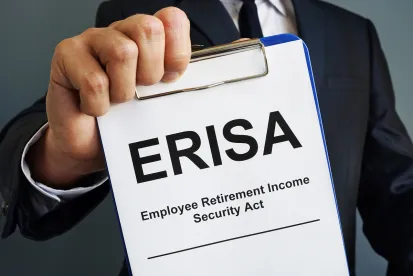To the disappointment of many in the ERISA community, the Supreme Court issued a six-page opinion on January 24th that declined to opine on most of the issues that were before the Court in Hughes v. Northwestern University, No. 19-1401 (U.S. Jan. 24, 2022). In a unanimous opinion authored by Justice Sotomayor, in which Justice Barrett took no part, the Court vacated and remanded the Seventh Circuit’s decision upholding the dismissal of plaintiffs’ claims of excessive recordkeeping and investment management fees in Northwestern University’s 403(b) plans. The Court stated that the Seventh Circuit erred insofar as the dismissal was based in part on the statement that offering expensive options was not imprudent because plaintiffs had the option of investing in less expensive alternatives. The Court found this reasoning to be inconsistent with Tibble v. Edison Int’l, 575 U.S. 523 (2015), which demands that fiduciaries continuously monitor each investment option in a plan to ensure that it is prudent and remove imprudent funds within a reasonable time. The Court remanded the case with instructions to follow the requirements of Tibble and apply the pleading standards of Bell Atlantic v. Twombly, 550 U.S. 554 (2007) and Ashcroft v. Iqbal, 566 U.S. 662 (2009).
By focusing on, and rejecting, the Seventh Circuit’s “investor choice” rationale, the Supreme Court avoided the need to address the various other issues that have divided lower courts wrestling with the massive surge of excessive fee and investment prudence litigation brought against the fiduciaries of 401(k) and 403(b) plans since 2015. By way of example, the Court did not address whether it is sufficient at the pleading stage for a plaintiff to merely allege that a plan offered retail share class mutual funds instead of lower cost institutional share class funds, when the retail share class might generate revenue sharing credits that paid for recordkeeping fees; or that the plans paid recordkeeping fees through an asset-based arrangement that resulted in a higher per participant fee than other allegedly comparable plans, when the higher costs might have paid for services not provided to other plans.
While the Court did not reach these issues specifically, it did provide some broad guidance that may turn out to be instructive in future cases. First, as noted, the Court directed the Seventh Circuit to apply the pleading standard set forth in Twombly, which allowed for the consideration of obvious and lawful explanations for the alleged wrongdoing. Second, the Court directed that the lower courts consider its previous decision in Fifth Third Bancorp v. Dudenhoeffer, 573 U.S. 409 (2014), an ERISA breach of fiduciary duty stock drop case, which stated that at the pleading stage courts must conduct a “context specific” inquiry to determine if plaintiff has plausibly alleged a breach of the duty of prudence. Lastly, the Court concluded its decision by stating that “due regard” must be given to the “reasonable judgments a fiduciary may make based on her experience and expertise.”
Takeaway
It would be an understatement to say that the decision did not live up to the expectations of the ERISA bar when certiorari was granted. But the limited guidance offered at the end of the Court’s opinion may provide some added ammunition at the district court level, as the defense bar continues its battle to slow down the current tidal wave of fee and investment litigation.




 />i
/>i

